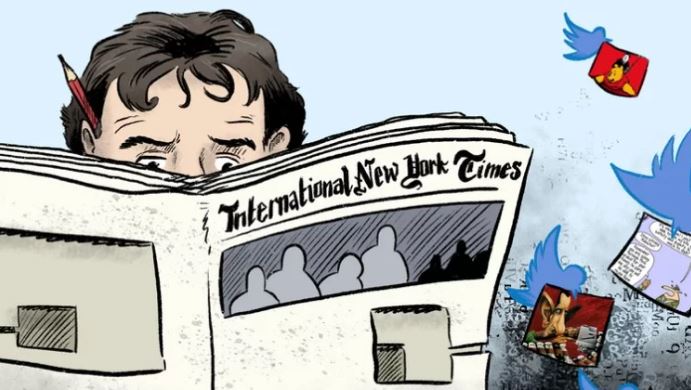The New York Times’ decision to end daily political cartoons in its international edition has led to predictions of the death of cartooning. But the decision actually reflects an increasingly globalised, online industry.
The New York Times has announced it will no longer be running daily political cartoons in its international edition, amid continuing controversy over anti-Semitism in its pages. This brings the international paper in line with the domestic edition, which stopped featuring daily political cartoons several years ago.
It follows an earlier decision to end syndicated cartooning (“syndicates” represent collectives of cartoonists, looking to have work placed in a variety of publications). The Times said that a “faulty process” and lack of oversightled to a syndicated cartoon of Israeli Prime Minister Benjamin Netanyahu and Donald Trump (which was condemned by many as anti-Semitic) slipping through the net on April 25.
The decision has caused international consternation and prompted doom-laden predictions about the death of cartooning, or even of free speech itself. The paper’s former in-house cartoonists – Patrick Chappatte and Heng Kim Song – have taken to Twitter and the web to defend their careers and their profession.
But this decision should be seen less an overreaction by a newspaper frightened of (of all things) bad press than a wake-up call. It’s a moment to acknowledge the new realities of cartooning, globally. As The Times’ editors have asserted, this has been a long time coming.
Read the article by Richard Scully in The Mandarin.

